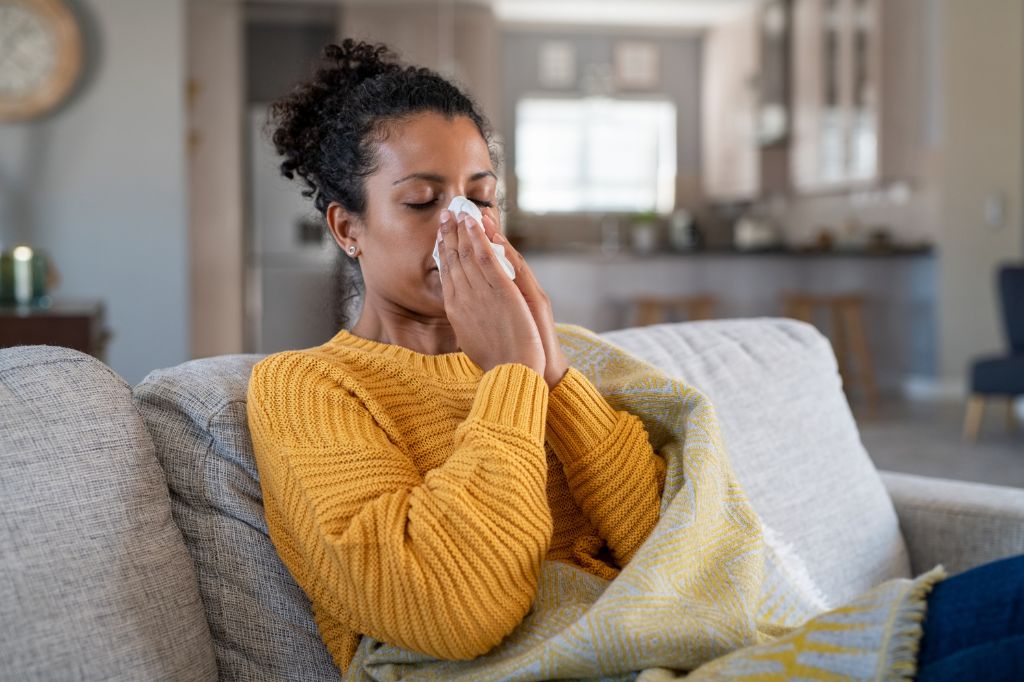
Winter Allergies in Massachusetts: Causes, Symptoms and Relief
Winter in Massachusetts can bring cozy nights and snowy scenes, but it also brings frustrating winter allergies for many. While seasonal allergies are commonly associated with spring and summer, winter allergens may cause just as much discomfort. Indoor irritants, mold spores, and pet dander often intensify during the colder months.
Common Winter Allergy Triggers
During the colder months, many allergens are concentrated indoors, where they can quickly build up and aggravate symptoms. These triggers often go unnoticed but may significantly impact your comfort and health. Knowing what to look for is the first step to managing winter allergies effectively. Common winter allergy triggers include:
- Dust Mites: These microscopic pests thrive in warm environments like bedding, furniture, and carpets.
- Mold and Mildew: Found in damp or poorly ventilated areas such as basements, bathrooms, or near leaky windows.
- Pet Dander: Hair and skin flakes from pets can accumulate on furniture, carpets, and in the air.
- Indoor Dust: A mix of fine particles, including dead skin cells, pollen, and other allergens, can become airborne easily.
- Fireplace Smoke: Burning wood in fireplaces releases irritants and particulate matter into the air.
- Pollen on Clothes and Pets: Outdoor allergens can hitch a ride indoors on clothing, shoes, or your pet’s fur.
Symptoms of Winter Allergies
Winter allergy symptoms can closely resemble those of a cold, making it difficult to differentiate between the two. However, unlike colds that typically last a few days to a week, allergy symptoms can persist for weeks or even months. Common symptoms of winter allergies include:
- Persistent sneezing or nasal congestion
- Watery, itchy eyes
- Scratchy throat or coughing
- Skin irritation or rashes
- Asthma and difficulty breathing
Effective Ways to Manage Winter Allergies
Managing winter allergies starts with creating an environment that minimizes exposure to common indoor triggers. From reducing dust and mold to improving air quality, a combination of proactive measures can significantly ease allergy symptoms. Small changes in cleaning routines, ventilation, and how you interact with pets and household products can make a noticeable difference. Below are some practical strategies to help you breathe easier and enjoy a more comfortable winter season.
Clean Regularly
Maintaining a clean home is essential for managing winter allergies. Vacuum carpets and furniture with a HEPA-filter vacuum to trap allergens, and wash bedding and curtains weekly in hot water to eliminate dust mites. Additionally, wipe down surfaces regularly to remove dust buildup and prevent allergens from circulating in the air. A consistent cleaning routine can significantly reduce indoor allergy triggers.
Invest in Air Purifiers
Air purifiers with HEPA filters can be a game-changer for managing winter allergies. They work by capturing airborne allergens like dust, pet dander, and mold spores, improving indoor air quality. Place purifiers in high-traffic areas such as bedrooms and living rooms for maximum effectiveness, and ensure filters are cleaned or replaced regularly to maintain optimal performance.
Minimize Pet Dander
For pet owners, reducing exposure to pet dander is key to managing winter allergies. Keep pets out of bedrooms and off furniture to limit allergens in sensitive areas. Regularly groom and bathe your pets to reduce the amount of dander they shed, and wash pet bedding frequently. Using washable covers on furniture and vacuuming with a HEPA-filter vacuum can also help minimize dander buildup in your home.
Improve Ventilation
Good ventilation is crucial for reducing indoor allergens and maintaining fresh air during the winter months. Use exhaust fans in kitchens and bathrooms to minimize moisture buildup that can lead to mold growth. On mild days, open windows briefly to allow fresh air to circulate and dilute allergens. Additionally, consider using air exchangers or dehumidifiers to keep indoor humidity levels in check, creating a less hospitable environment for dust mites and mold.
Avoid Irritants
Limit exposure to common irritants that can exacerbate winter allergies. Reduce the use of fireplaces or ensure they are well-ventilated to prevent smoke particles from worsening symptoms. Opt for unscented cleaning products and candles, as strong fragrances can irritate sensitive airways. Taking these precautions helps create a more comfortable and allergen-free indoor environment.
Take Control of Winter Allergies With Northeast Allergy
Winter allergies can disrupt your comfort and daily life, but relief is within reach. At Northeast Allergy, our specialists provide personalized care to identify your triggers and create an effective treatment plan. From allergy testing to tailored solutions, we’re here to help you find relief and breathe easier. Schedule an appointment today and take the first step toward managing your winter allergies.



